Clifford Garstang's Blog, page 66
January 20, 2014
The New Yorker: “A Mistake” by Akhil Sharma
 January 20, 2014: “A Mistake” by Akhil Sharma
January 20, 2014: “A Mistake” by Akhil Sharma
As we learn in the Q&A with Akhil Sharma, this story is “adapted from parts” of a forthcoming novel, which in turn is based on a story, and all are based on actual events in the author’s life. He discusses the process of turning those real events into fiction—familiar challenges to writers who have attempted this.
Perhaps the book is more compelling, but I didn’t find much to grab me in the story. A family moves from India to New York. The older son is severely injured in an accident. The narrator is also traumatized and is forced to re-evaluate his relationships to his parents and brother.
This is a common problem with excerpts—often any meaning underpinning the novel doesn’t accompany the threads that are assembled into a story. But it’s available to read for free, so judge for yourself.
The New Yorker: “The Frog Prince” by Robert Coover
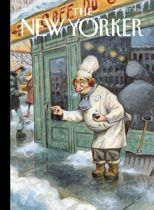 January 27, 2014: “The Frog Prince” by Robert Coover
January 27, 2014: “The Frog Prince” by Robert Coover
According to the Q&A with Robert Coover, this is a “reimagined fairy tale.” Well, yes. But beyond that, the magazine stretches to ask Coover questions that shed light on this story. The girl turns the frog into a prince by kissing him, she gets high by licking him (in his special froggy places), they have sex (his semen tastes “muddy”), and he eventually gets tired of the whole thing because, as it turns out, he wasn’t a prince originally—he was just a frog.
That’s all I’ve got.
January 17, 2014
2014 Reading: Transatlantic by Colum McCann
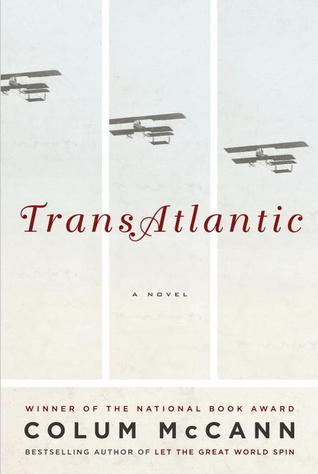 TransAtlantic: A Novel by Colum McCann
TransAtlantic: A Novel by Colum McCann
As with McCann’s previous novel, the masterful Let the Great World Spin, this novel is told in strands that seem quite separate at first but eventually come together. First we see two pilots making a transatlantic flight in 1919, from Newfoundland to Ireland. Then we step back to 1845 and Frederick Douglass’s visit to Ireland to promote his book and to raise funds for the abolitionist cause. Then we jump ahead to 1998 and George Mitchell’s negotiation of the Irish peace settlement. That’s the first section of the novel and then we begin to see how these different stories relate to each other.
There are some broad themes here, one of which is the demoralizing effect of poverty. Douglass–still technically a slave and so with his own troubles–is deeply moved by the poverty he observes in Ireland. By the end of the book, set in 2011, that poverty has come full circle. McCann is also drawing a connection between the Irish “Troubles” and the American Civil War. Not an equivalence, exactly, but both tragic wars fought for reasons that are sometimes hard to fathom.
Terrific book. Not as terrific as Let the Great World Spin, which caused me to stop writing for a time, but a very enjoyable read.
January 15, 2014
Ain’t Technology Amazing?
 I took some time off today to head “over the mountain” (which is what we in the Central Shenandoah Valley say when we’re going to Charlottesville). I was going to meet a friend for lunch and also had some book related errands. I figured I’d have a little spare time to sit in one of Charlottesville’s great coffee shops, though, so I took my tablet with me so I could read and, to be honest, so I could be somewhat connected–check emails, Facebook, etc.
I took some time off today to head “over the mountain” (which is what we in the Central Shenandoah Valley say when we’re going to Charlottesville). I was going to meet a friend for lunch and also had some book related errands. I figured I’d have a little spare time to sit in one of Charlottesville’s great coffee shops, though, so I took my tablet with me so I could read and, to be honest, so I could be somewhat connected–check emails, Facebook, etc.
I’m glad I had the tablet. When I sat down with my coffee in Mudhouse (love that place!) and looked at my email, there was a note from my agent asking for a document he needed to complete the package for the pitch he’s making to publishers about my novel. I had to reply that it would have to wait until I got home at about 3.pm.
But then . . . I remembered that the document lives in my Dropbox account. I had never accessed Dropbox from my tablet, but within minutes I had downloaded the app, logged into my account, found the document, attached it to an email, and it was in my agent’s hands.
It’s almost unfathomable. I love it.
January 12, 2014
The New Yorker: “The Paper Revolution” by Dinaw Mengestu
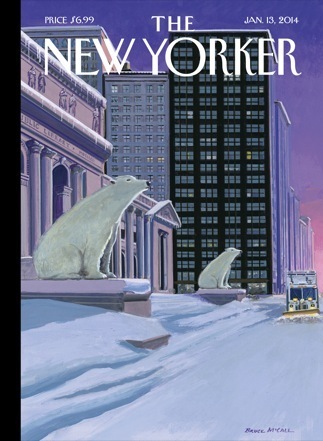 January 13, 2014: “The Paper Revolution” by Dinaw Mengestu
January 13, 2014: “The Paper Revolution” by Dinaw Mengestu
This fiction is an excerpt from a novel by Mengestu that comes out this spring, and judging by the Q&A with Dinaw Mengestu it’s going to be quite interesting—parallel stories set in Africa and America in the 70s. What we have here, by itself, is also quite interesting. It’s the beginning of post-colonialism in Africa and there is a certain amount of optimism and political activism. The narrator, from Ethiopia, has arrived in Uganda to be part of that. Hanging out at the university, he meets Isaac, who also isn’t a student, and the two of them represent the voice of poverty that is in danger of being overlooked.
The plot isn’t so important: The narrator is inspired by the recent occurrence of the African Writers’ Conference. It’s less clear what motivates his friend Isaac. It’s Isaac, though, who gets beaten up, although both of them—poor boys living on less than a shoestring—risk being arrested at any moment.
So, not much to talk about here, but it’s a nice teaser for the novel.
January 2, 2014
Writing Goals for 2014
 I’ve seen a lot of my writer friends post their writing goals on Facebook, and I think that’s a good practice, so instead of writing, I think I’ll do the same thing.
I’ve seen a lot of my writer friends post their writing goals on Facebook, and I think that’s a good practice, so instead of writing, I think I’ll do the same thing. 
I’m not a big fan of New Years Resolutions. For me they’re pretty much always the same, and I’m not too good at sticking too them (lose weight, exercise more, yadda yadda), so what’s the point? My main resolution for this year is to live better. I’ll try to heat a healthier diet, get to the gym more, and reduce stress. Beyond that?
Writing goals are different, though. This is my job, right? So in order to measure if I’m doing my job well, I need to know what the objectives are. And so, in 2014, I will:
1) Edit the Everywhere Stories anthology. (It’s scheduled to come out in October, so I’ve got a March 31 deadline of picking the stories.)
2) Finish a draft of the mosaic novel I’m working on. I’m maybe a third done with this now, so I’d like to have the draft finished by mid-year.
3) Write a couple of short stories. (I’ve got a start on a few, so I’ll probably work with those). I need some stories to be submitting!
4) Progress (I won’t say finish, because that’s unrealistic, given everything else) on the quasi-historical novel I’ve done a very rough draft of.
5) Shepherd Prime Number Magazine Editors’ Selections Vol. 4 to publication. We’ll start this in the Summer and it will come out in late November.
That ought to keep me out of trouble. (Especially if we’re able to place the novel I’ve recently finished.)
January 1, 2014
The New Yorker: “First Husband” by Antonya Nelson
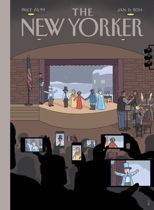 January 6, 2014: “First Husband” by Antonya Nelson
January 6, 2014: “First Husband” by Antonya Nelson
This is a terrific story with a lot going on. It’s a little hard to keep track of the people and their relationships, but it comes together. (The story is free to read, so you should!)
The first husband of the title is the protagonist’s first husband, her ex. Although Lovey is now married to William, her first husband’s youngest daughter, Benadette, comes to Lovey when there is a problem. Which there is on the night of this story. Lovey is having a dream in which the first husband features. Uh-oh, the reader correctly worries. (I hate dreams in short stories. To me the make the fiction more unbelievable, so if you’re going for realism, I recommend cutting dreams. But what do I know? Antonya Nelson doesn’t seem to be worried about it.) Bernadette’s husband, Aaron, who is a hell-raiser, is apparently on a binge and would Lovey watch the three kids while Bernadette finds him. So Lovey does that—feeds the infant from Bernadette’s breast milk, plays Monopoly with Caleb, the sensitive oldest child, and tries to pacify the toddler, still in diapers. But Bernadette may not have been completely honest about what was going on . . .
The main story here is Lovey’s apparently lingering feelings for her passionate first husband (who is now on his fourth wife) despite her love—but maybe not passion—for safe William. William, too, has an ex for whom he is the first husband, so Lovey is surrounded by them.
But there is also Bernadette’s story. Lovey is Bernadette’s enabler—a weak child who got into trouble a lot, and there’s a suggestion that Lovey might have been partly to blame for that. The older girls, not raised by Lovey, are more stable.
And, finally, there’s Lovey’s relationship with Bernadette’s children, especially Caleb, the boy. Caleb is perfectly competent—he knows how to heat the milk for the baby—and yet Lovey feels the need to let him win at Monopoly. Is she repeating mistakes she made with Caleb’s mother?
So we don’t need much help from the Q&A with Antonya Nelson, but it’s interesting to read anyway.
December 31, 2013
My Year in Reading: 2013
 I read about 80 books this year. I thought I was going to hit 100, but I had a terrifically busy fall. Still, 80 is a lot, and I read some very good ones. I read poetry and, because of my book club, a fair amount of non-fiction. But mostly I read fiction because that’s what I like and that’s what I write. Not everything I read was new, although most of it was relatively recent. Probably next year I’ll read a lot of what was published this year. Story of my life.
I read about 80 books this year. I thought I was going to hit 100, but I had a terrifically busy fall. Still, 80 is a lot, and I read some very good ones. I read poetry and, because of my book club, a fair amount of non-fiction. But mostly I read fiction because that’s what I like and that’s what I write. Not everything I read was new, although most of it was relatively recent. Probably next year I’ll read a lot of what was published this year. Story of my life.
Below is a list of some very good fiction I read this year, in no meaningful order (I think it’s the reverse chronological order of when I finished them). It’s a pretty long list to be a “best of” list, but I didn’t want to leave any of these books off. And the links are to the mini-reviews I did of them on this blog. (To see all of my mini reviews, go here.) If I had to pick one book out of all that I read this year as my favorite, I’d have to say Suite Francaise. It’s brilliant.
The Right Hand Shore by Christopher Tilghman
The Yellow Birds by Kevin Powers
The Civilized World by Susi Wyss
The Virgins by Pamela Erens
Suite Francaise by Irene Nemerovsky
Flashes of War by Katey Schultz
The Forty Rules of Love by Elif Shafak
A Visit from the Goon Squad by Jennifer Egan
Life Among Giants by Bill Roorbach
Wash by Margaret Wrinkle
Shine Shine Shine by Lydia Netzer
The Round House by Louise Erdrich
Prosperous Friends by Christine Schutt
Arcadia by Lauren Groff
December 30, 2013
The New Yorker: Stories of the Year — 2013
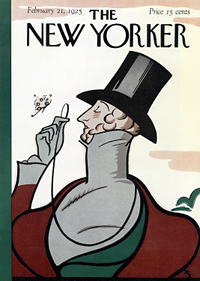 New Yorker Stories of the Year
New Yorker Stories of the Year
For the past several years, I’ve been asking readers to vote on the New Yorker Story of the Year. It’s fun, but meaningless. Emphasis on the meaningless. Instead, let me just tell you what my favorite stories of the year are. If you have other favorites, or reactions to my picks, please do leave a comment below. The links are to the discussion of the story on this blog:
Tessa Hadley: Experience
Paul Theroux: I’m the Meat, You’re the Knife
Joyce Carol Oates: Mastiff
Sherman Alexie: Happy Trails
Chimamanda Ngozi Adichi: Checking Out
What were your favorites?
December 29, 2013
The New Yorker: “Coming Soon” by Steven Millhauser
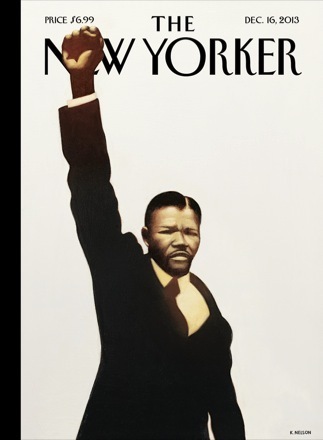 December 16, 2013: “Coming Soon” by Steven Millhauser
December 16, 2013: “Coming Soon” by Steven Millhauser
Weird story. Twilight Zone? Kafka? (I couldn’t find a Q&A with Millhauser, so I guess we’re on our own.)
Levinson has moved to a small town to escape the city. He still works hard, but it’s way less stressful than it used to be. Still, he notices that it’s improving and there’s a lot of growth and activity. He goes to visit family and comes back—or does he? There’s a suggestion of a dream state. It hardly matters, though, whether what follows is a dream or an impossible reality. Growth in the town—construction of high-rise apartments, McMansions, new restaurants and shops, an expressway—has moved into hyperspeed.
What’s the point here? You can’t escape progress?



